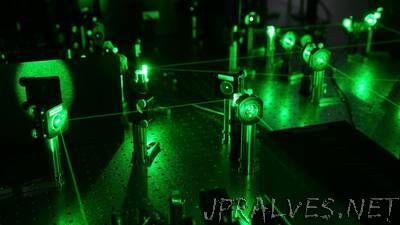
“A team of scientists from eastern China has built the first form of quantum computer that they say is faster than one of the early generation of conventional computers developed in the 1940s. The researchers at the University of Science and Technology of China at Hefei in Anhui province built the machine as part of efforts to develop and highlight the future use of quantum computers. The devices make use of the way particles interact at a subatomic level to make calculations rather than conventional computers which use electronic gates, switches and binary code. The Hefei machine predicts the highly complex movement and behaviour of subatomic particles called photons, which make up light. Normal supercomputers struggle to predict the behaviour of photons because of their huge level of unpredictability and the difficulties in modelling. Pan Jianwei, the lead scientist on the project, told a press briefing in Shanghai on Wednesday that their device was already 10 to 11 times faster at carrying out the calculations than the first electronic digital computer, ENIAC, would have been capable of. ENIAC was developed in the 1940s.”
